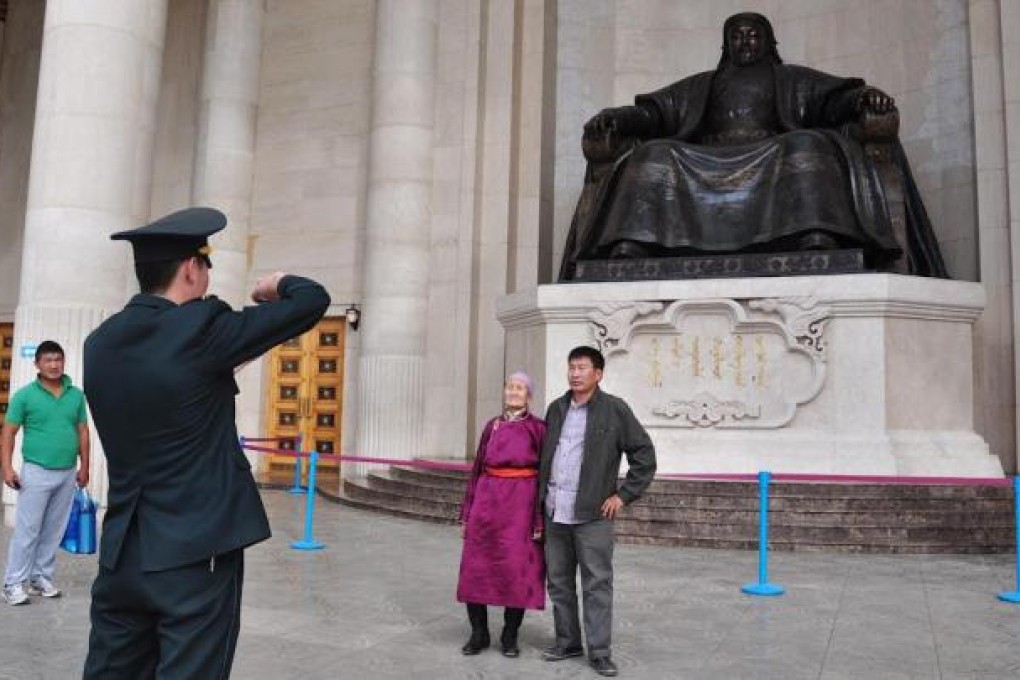Mongolians see change as Government House opens to public
Government House opens to public, symbolising new leaders' commitment to greater transparency


But it was never for the lack of interest that the general public was kept at bay. The statue stood alone because ropes cordoned it off from ordinary citizens, with soldiers shooing away those who came too close.
But the statue is receiving plenty of visitors of late, after Mongolia's new prime minister opened Government House to the public. Ordinary Mongolians can now get up close and personal with the statue of Genghis Khan, who is considered the nation's founding father. They can also visit a new museum tucked into one wing of the building.
Said Radansuren Javzan, 70, who was visiting the Parliament building for the first time: "I never imagined I'd be here. I think the government wants to be closer to the people."
The removal of the barriers is somewhat symbolic of changes blowing across the Mongolian steppes as the country's newly elected government has vowed greater openness, transparency and engagement with the public.
Although in power for just a few weeks, the ruling Democratic Party (DP) has already organised town hall meetings, laid out its plan for tackling corruption and discussed ways to include the public in budget planning.